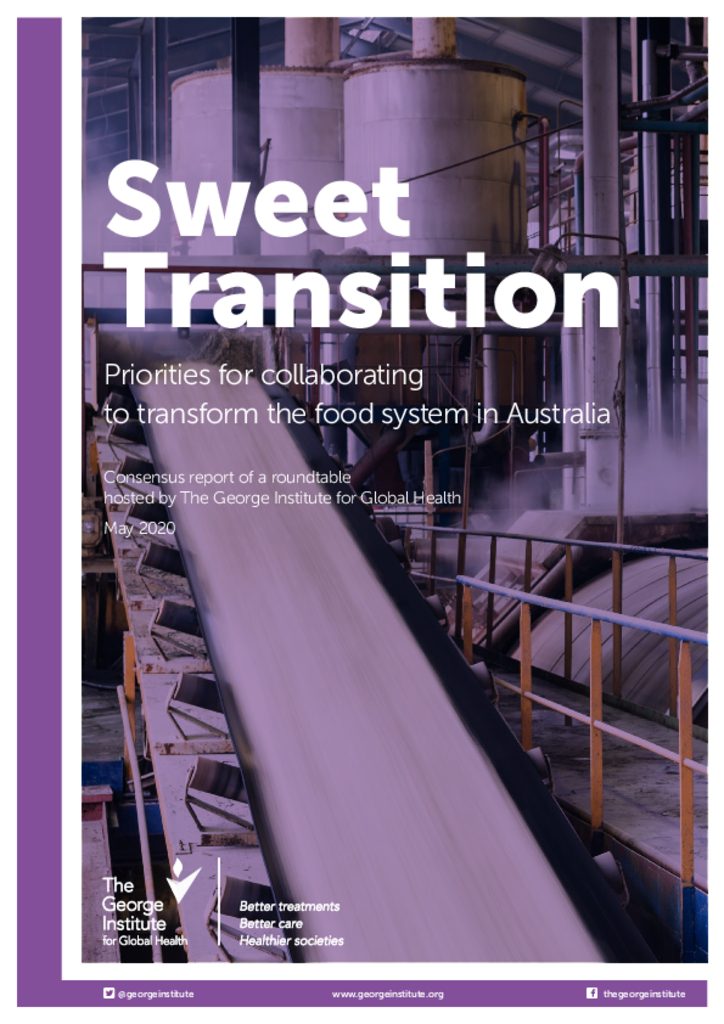
It’s not just sugar, it’s the food system: new report outlines path to better dietary and planetary health
SYDNEY, MAY 19 - To address the adverse effects of sugar on health and the environment, we must look at the broader food system, according to a new report from a roundtable of industry and health experts.
One in two Australians has one or more chronic diseases such as heart disease, stroke, or diabetes. Two in three adults are either overweight or obese, and one in four children are obese, with excess sugar consumption being a key contributor to obesity and diabetes.
In terms of the environment, sugar cane production is a significant consumer of Australia’s water supplies and the polluted run-off is damaging to natural ecosystems like the Great Barrier Reef.
The expert consensus report, Sweet Transition: Priorities for collaborating to transform the food system in Australia, is the outcome of a roundtable hosted by The George Institute for Global Health and calls for a whole of government, whole of system approach to mitigate the broad impacts of sugar.
Dr Jacqui Webster from The George Institute for Global Health, said there was a need for a long-term vision to tackle the current problems.
“Eating too much sugar, whether this be in the form of sugar sweetened beverages or in everyday foods, is symptomatic of a broader system problem,” she said.
“The consensus from our expert panel was that we need a food system that is geared towards promoting the health of both people and the planet, not just making profits.”
“We need an alternative to our current approach – driven by a shared vision, with diverse voices, and a focus on added benefits for consumers, governments, industry, and communities,” she added.
The report outlines the shared vision identified by roundtable participants including: a coordinated, system-wide approach to food and environmental policy; transparency in setting these policies; economic sustainability, and an equitable and accessible food system. Priority action to achieve this vision include:
- extending the collaboration to inspire broader social movement;
- promoting shared values for change, and
- advocating for adoption of indicators of success that reflect equity and the health and wellbeing of people and the environment.
“Ultimately, we need to reduce the burden of chronic diseases on lives, the health system and the planet by reverse-engineering our current approach,” added Dr Webster.
“An overhaul of our food system is a must, and now we have a clear long-term vision and roadmap towards a more equitable sustainable future.”
The new report builds on a comprehensive overview by Vanessa Clarkson commissioned by The George Institute, ‘Sugar in Australia: A Food Systems Approach: Competing Issues, Diverse Voices, and Rethinking Pathways to a Sustainable Transition’, to broaden the debate on sugar in Australia so that the entire system is considered, including sugar’s effects on people and the environment.






